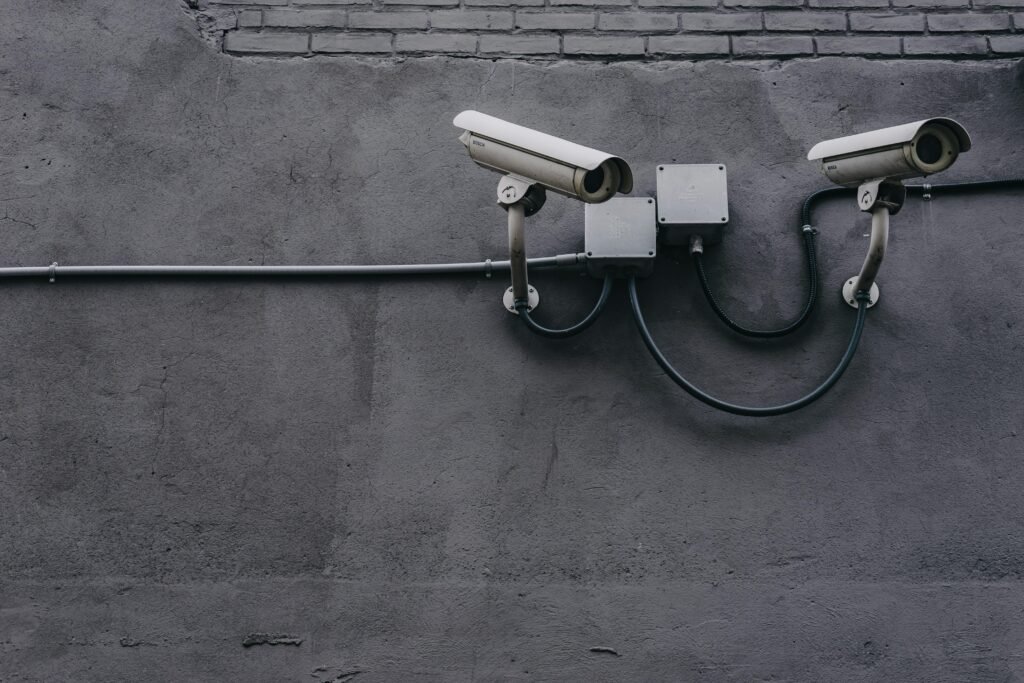Welcome to an article that will help you navigate the world of online shopping with confidence and peace of mind. By adopting safe online shopping habits, you can protect yourself from potential scams, identity theft, and fraudulent purchases. In this article, you will learn simple yet effective tips to safeguard your personal information, secure your transactions, and ensure a positive shopping experience every time you make a purchase online. Stay informed, stay aware, and shop safely! Have you ever felt nervous about shopping online, worried about the security of your personal information and financial details? It’s completely normal to have concerns when it comes to online shopping, but there are steps you can take to protect yourself and ensure a safe and secure shopping experience. In this article, we will discuss safe online shopping habits that you can adopt to safeguard your sensitive information and shop with peace of mind. Let’s dive in!

This image is property of images.pexels.com.
Check out our Product Reviews
Importance of Safe Online Shopping Habits
Online shopping has become increasingly popular in recent years, offering convenience and a wide range of products at your fingertips. However, with the rise in popularity of online shopping also comes an increase in cyber threats and fraudulent activities. It is important to prioritize safe online shopping habits to protect yourself from falling victim to scams, identity theft, and other cybercrimes. By following some simple guidelines and best practices, you can minimize the risks associated with online shopping and enjoy a secure shopping experience.
Shopping online can be risky
Shopping online can be a risky endeavor if you are not careful about how you conduct your transactions. From fake websites designed to steal your personal information to phishing emails and ransomware attacks, cybercriminals are constantly looking for ways to exploit online shoppers. It is crucial to be aware of the potential risks and take steps to protect yourself when shopping online.
Stay vigilant and informed
One of the most important aspects of safe online shopping is staying vigilant and informed about the latest threats and security measures. Keep yourself updated on common scams and fraud tactics used by cybercriminals to target online shoppers. By being aware of the risks involved in online shopping, you can better protect yourself and make informed decisions when making purchases online.
Secure Your Devices and Internet Connection
Before you start shopping online, it is essential to ensure that your devices and internet connection are secure to minimize the risk of cyber threats. By taking the necessary precautions, you can protect your personal information and financial details from potential cyber attacks.
Keep your devices updated
Make sure that your devices, including your computer, smartphone, and tablet, are regularly updated with the latest security patches and software updates. Outdated software can leave your devices vulnerable to cyber threats, so it is important to keep them up to date to protect your sensitive information.
Use a secure internet connection
When shopping online, avoid using public Wi-Fi networks, as they are often unsecure and can be easily compromised by cybercriminals. Instead, use a secure and encrypted internet connection, such as a password-protected home network or a virtual private network (VPN), to safeguard your online transactions.
Enable two-factor authentication
Two-factor authentication adds an extra layer of security to your online accounts by requiring you to provide two forms of verification when logging in. Enable two-factor authentication for your online shopping accounts to protect them from unauthorized access and keep your personal information secure.
Check out our Product Reviews
Shop from Reputable Websites
When shopping online, it is crucial to shop from reputable and trustworthy websites to ensure a safe and secure shopping experience. By choosing legitimate online retailers and avoiding suspicious websites, you can reduce the risk of falling victim to online scams and fraud.
Look for HTTPS and a padlock icon
Before making a purchase on a website, check for HTTPS in the website address and a padlock icon in the browser’s address bar. These indicators signify that the website has a secure connection and your information is encrypted, providing an added layer of protection for your online transactions.
Read reviews and ratings
Before making a purchase from an online retailer, take the time to read reviews and ratings from other customers. Pay attention to feedback about the quality of products, customer service, and overall shopping experience to ensure that you are dealing with a reliable and trustworthy seller.
Avoid unfamiliar websites
Be cautious when shopping on unfamiliar websites or online marketplaces that you have never heard of before. Stick to well-known and established online retailers to reduce the risk of purchasing counterfeit or fraudulent products and protect your personal information from scammers.
Use Secure Payment Methods
When shopping online, it is important to use secure payment methods to protect your financial information and prevent unauthorized transactions. By choosing reputable payment services and avoiding insecure payment methods, you can ensure a safe and secure checkout process.
Use credit cards or secure payment gateways
Opt for credit cards or secure payment gateways, such as PayPal or Apple Pay, when making online purchases. These payment methods offer enhanced security features, fraud protection, and encryption to safeguard your financial details and minimize the risk of payment fraud.
Avoid sharing sensitive information
Avoid sharing sensitive information, such as your social security number or bank account details, when making online purchases. Legitimate online retailers do not require this information for standard transactions, so be wary of any website that asks for unnecessary personal information.
Keep track of your transactions
Keep track of your online transactions and monitor your bank statements regularly to detect any unauthorized charges or suspicious activity. Report any discrepancies to your bank or credit card issuer immediately to prevent further fraudulent transactions and protect your financial accounts.

This image is property of images.pexels.com.
Beware of Phishing Scams
Phishing scams are a common tactic used by cybercriminals to trick unsuspecting victims into revealing their personal information and financial details. By being cautious and vigilant, you can protect yourself from falling victim to phishing scams and avoid compromising your sensitive information.
Watch out for suspicious emails
Be cautious of unsolicited emails, messages, and notifications that ask you to click on links or provide personal information. Phishing emails often mimic legitimate companies and websites to deceive recipients into disclosing their confidential data, so verify the authenticity of the sender before taking any action.
Avoid clicking on unfamiliar links
Avoid clicking on unfamiliar links or downloading attachments from unknown sources, as they may contain malicious software or phishing content designed to steal your information. Hover over links to check their URLs and verify the legitimacy of the websites before clicking on them.
Verify the legitimacy of requests
When in doubt, verify the legitimacy of requests for personal information or financial details by contacting the company directly through their official website or customer service channels. Legitimate companies will never ask you to disclose sensitive information via email or messages, so be wary of any unsolicited requests for personal data.
Protect Your Personal Information
Protecting your personal information is essential when shopping online to prevent identity theft and unauthorized access to your accounts. By taking proactive measures to safeguard your sensitive data, you can minimize the risk of cybercrimes and protect your privacy.
Create strong and unique passwords
Create strong and unique passwords for your online accounts to prevent hackers from gaining access to your personal information. Use a combination of letters, numbers, and special characters to create secure passwords and avoid using the same password for multiple accounts.
Use a password manager
Consider using a password manager to securely store and manage your passwords for different online accounts. Password managers generate complex and unique passwords for each account, encrypt your login credentials, and provide an extra layer of security to protect your sensitive information.
Be cautious with personal information
Be cautious when sharing personal information, such as your full name, address, phone number, and date of birth, online. Only provide necessary details to legitimate websites and avoid disclosing sensitive information on public forums or social media platforms to protect your privacy and prevent identity theft.

This image is property of images.pexels.com.
Conclusion
In conclusion, safe online shopping habits are essential to protect yourself from cyber threats and ensure a secure shopping experience. By staying vigilant, informed, and proactive, you can minimize the risks associated with online shopping and protect your sensitive information from scammers and cybercriminals. Keep these safe online shopping practices in mind the next time you shop online to safeguard your personal information and shop with confidence. Stay safe and happy shopping!
Check out our Product Reviews